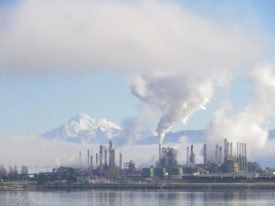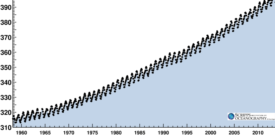Anna:
Are you eating flame retardants with your peanut butter and jelly?
A bunch of big US corporations publicly claim to support climate change science and solutions, but behind the scenes they’re contributing heavily to politicians and research groups that deny or play down the threat of global warming, according to a new study from the Union of Concerned Scientists.
Can bisphenol A make you fat?
Walkability boosts property prices. Here’s Better Cities and Towns with a Seattle-area real estate parable.
Property values in Redmond, Washington, and Seattle’s Capitol Hill used to be equal. The desire for urban density, walkability, and access to parks has now tilted values decisively in city neighborhoods’
From the How Our Brains Work Dep’t: David Ropeik weighs in both on Nobel Prizewinner Daniel Kahneman’s idea that we think both fast and slow and on Dan Kahan’s studies illustrating “cultural cognition.” And for those who aren’t familiar with “cultural cognition,” here’s Ropeik’s summary:
Cultural Cognition theory…finds that though we employ facts as weapons in our battles over issues and ideas, the real war is about tribal identity and cohesion. We interpret the facts – no matter how many of them we have at our disposal – so our views agree with the groups with which we most closely identify. And we fiercely defend the views of our group because our own identity, and even our personal safety, rely to a great degree on being a member of the tribe in good standing.
See also: Dave Roberts’ take on Kahan’s recent article in Nature demonstrating the cultural cognition problem for climate deniers.
Clark:
Portland-based economist Joe Cortright says smart things about how we measure congestion—namely, that we measure it very, very badly.
An interview from Paul Krugman, covering climate change (among many other topics).
Let’s step back for a moment. What do you think we should be worrying about in 10 years?
I really think 10 years from now the signs that we’re on a runaway climate change [sic] will start to become a lot more obvious. It won’t be big rises in temperature yet, but will be enough to make people look around and say, oh my God. But by then, it will be very hard to bring it under control.
Are you a technological optimist on this?
Well, there are different kinds of technological optimists. One kind of technological optimist says we’ll spontaneously develop technologies that give us perfectly clean energy. I think so long as fossil fuels are cheap, people will use them and it will postpone a movement towards new technologies. And then there’s geoengineering, which we may eventually use out of desperation, but is full of unintended consequences and political questions. That won’t affect all countries equally. It will hurt some countries and help others. It would be a helluva thing to throw into the global situation.
I’m a technological optimist in that I think if we had appropriate pricing, we’d find it remarkably easy. The cost of getting out of rising emissions would be much lower than legend has it. But I’m not politically optimistic that we’ll do that.
So you’re an economics optimist. You think if we got the price right, we could get the technology right.
Yes. But it’s scary stuff.
Malcolm Gladwell thinks that college football should be banned. He may be right – a lot of youngsters get permanently injured on the field, often from “repetitive subconcussive impact”— essentially, brain damage in slow motion. But what stuck out at me in the interview weren’t Gladwell’s answers, but instead, one of the questions—a long-winded question, admittedly, but one that contained a great quote from this article:
If recent history has shown anything, it is that observers cannot easily imagine the big changes in advance. Very few people were predicting the collapse of the Soviet Union, the reunification of Germany, or the rise of China as an economic power. Once you start thinking through how the status quo might unravel, a sports universe without the NFL at its center no longer seems absurd.
Amen to that. If my life has taught me anything, it’s that the future is almost totally unforeseeable: the impossible becomes commonplace all the time.
Eric:
I thoroughly enjoyed Rocky Barker’s story of the sockeye comeback in Idaho’s Redfish Lake. It’s a detailed and encouraging account of how dedicated conservationists restored one of the most iconic salmon runs in the Northwest.
And while I’m on the subject, I think everyone who calls Salmon Nation home should make a pilgrimage at least once to Redfish Lake and the nearby Sawtooth Fish Hatchery, as well as to the mouth of the Columbia. It’s a long ways, both literally and figuratively, from Astoria to the Stanley Basin and it’s therefore a good way to be astonished by the journey those fish make.









Phinney Phish Phollower
The Redfish Lake story is less cheery than it looks, and reliance on hatcheries is perilous. Indeed, the story of salmon in the Columbia-Snake Basin is depressing, with almost every run listed as endangered or threatened. Not one run has been delisted. Since the Clinton administration, the government has repeatedly failed to produce a legally or scientifically adequate plan to actually recover these amazing fish. The current plan is among those found unlawful due to its vague optimism about speculative, unfunded, and even unidentified “habitat improvements” that NMFS predicts will work wonders. The Obama administration is doing no better than the Bushies. Disappointing. Disgusting.